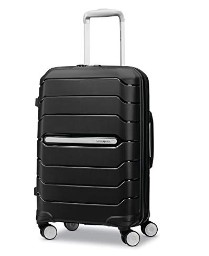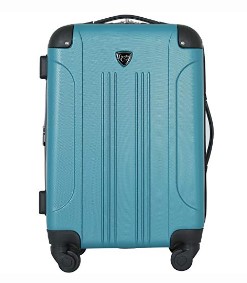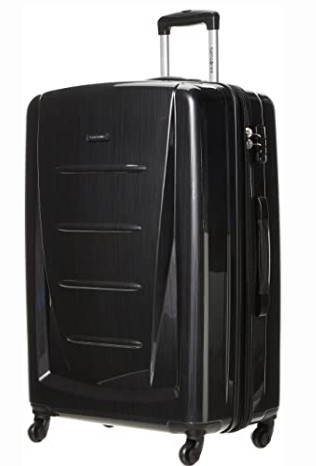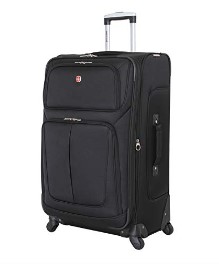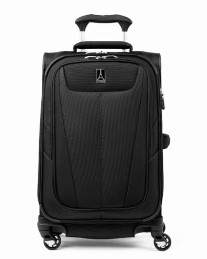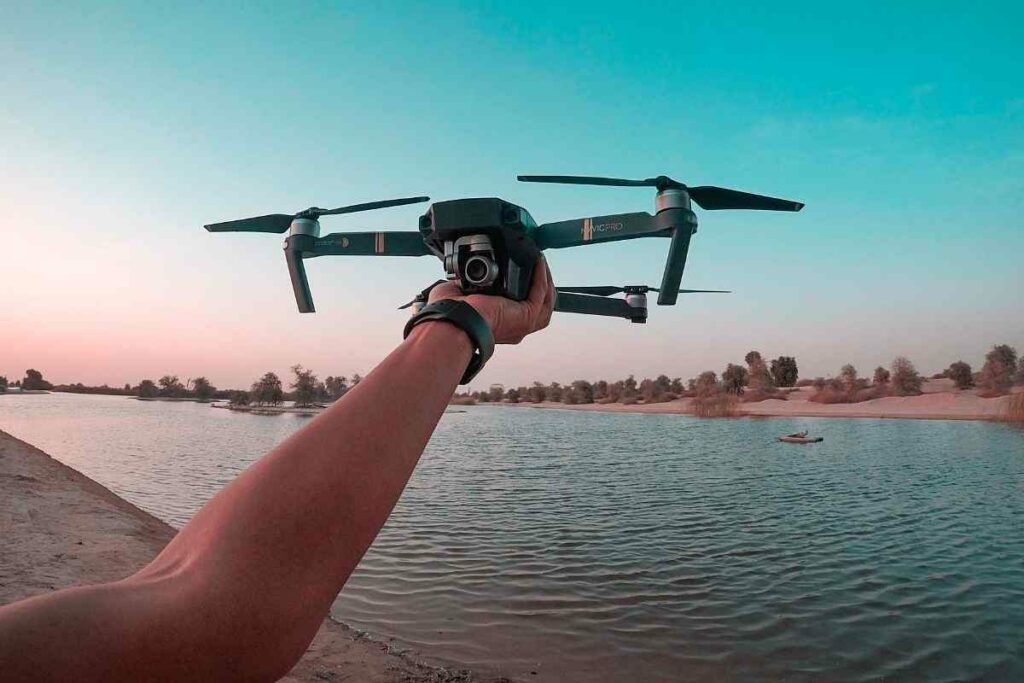As a first-time flyer or even an experienced traveler, you may ask yourself, do airlines prefer hard or soft luggage? The short answer is No.
Airlines do not have a preference for any luggage you carry. Whether you want to travel with a hard or soft suitcase is entirely up to you.
However, there are pros and cons of bringing the two different types of luggage when flying. You must also consider any weight restrictions and bag sizes, especially carry-ons.
Read on as we explore the advantages and disadvantages of hard vs. soft luggage. We will also discover if airlines prefer either of the two.
What Luggage Is Best For Flying?
Hard luggage is tough enough to handle the rough and tumble of constant travel. It also protects its contents better but may be heavier, especially if your concern is the weight.
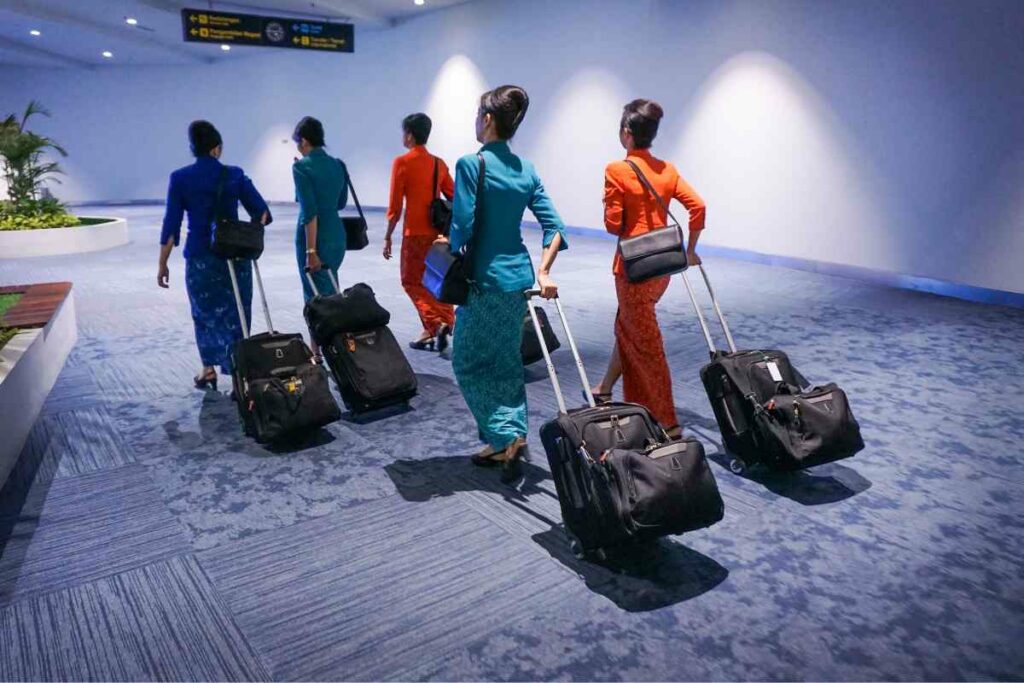
On the other hand, soft luggage is roomier, meaning you can pack extra items as the structure allows for expansion.
The disadvantage is they are prone to wear and tear, and chances of transit theft are higher.
While the best luggage for flying boils down to preference, most people choose hard luggage. I’d rather protect the contents in my bags during travel despite the higher fees most airlines charge.
However, money-conscious travelers will choose soft luggage, especially for carry-ons. It is also the best option if you are traveling light and do not need checked-in baggage for your flight.
However, your final flying bag choice should depend on the size, total weight, and airline baggage price.
Make a decision based on your needs and with sufficient information on the pros and cons of the different luggage.
Practical guides
Do Airlines Prefer Hard Or Soft Luggage?
While airlines will not tell you what luggage to carry, some factors may influence your choice.
First, if you are carrying fragile items, the suitcase must offer the most protection while being durable.
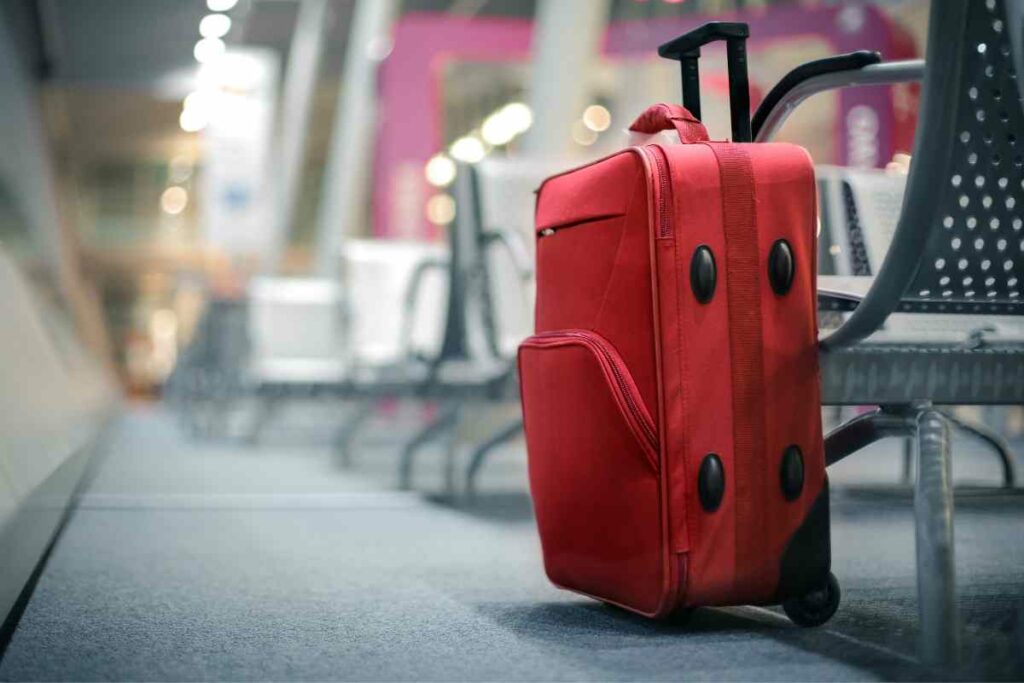
Second, if you want to squeeze your luggage into small spaces, ensure it is flexible. You may find yourself in a small airplane with minimal cabin space for your carry-on.
Busy flight routes also tend to have more passengers, meaning space will most likely be limited.
Lastly, the airport security check process will be smoother if you have simple luggage. Sturdy luggage will save time as the staff does not have to worry about damaging it. With this efficiency, you will also spend less time in the airport.
Hard Luggage vs. Soft Luggage
Significant differences exist between the two luggage’s, each with several benefits and disadvantages.
Besides material quality, the functionality of either bag is key when making a purchase decision.
Let’s look at the main differences, the pros and cons of each.
Difference Between Hard Luggage And Soft Luggage
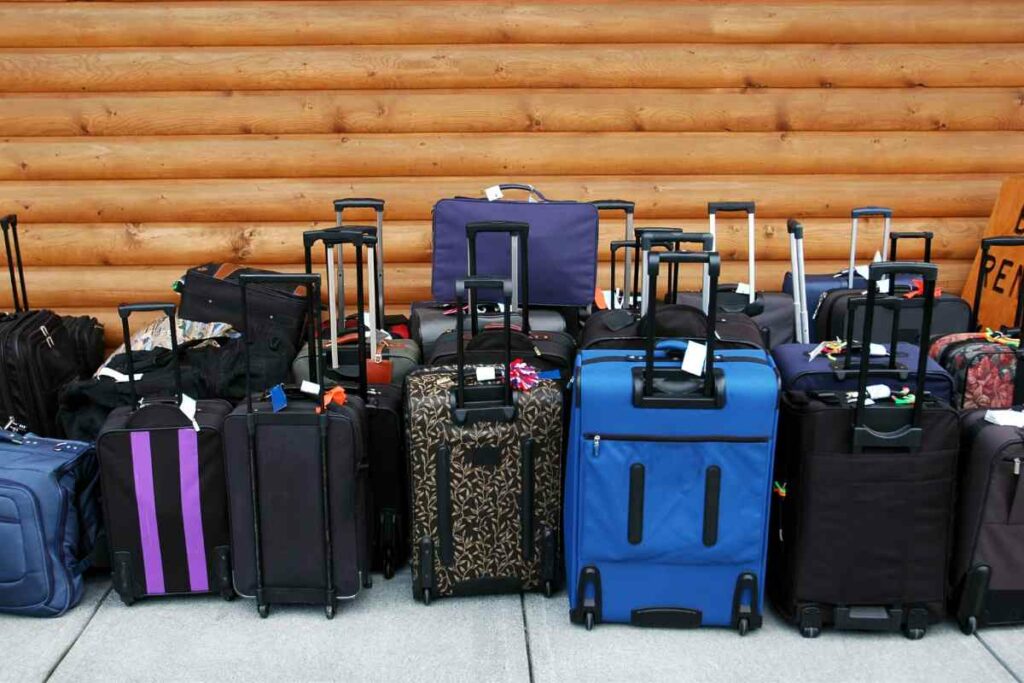
Look at the simple table below that shows the major differences between hard-sided and fabric suitcases.
| Hard-sided Luggage | Fabric Luggage |
|---|---|
| Solidly built to last long | Lightweight, stretchable material |
| Tough to fit under seats or overhead slots | Can squeeze into tight compartments |
| Can only fit particular items | It can expand to fit more items |
| May be costly | Tend to be affordable |
| Protects fragile objects | It can be unsafe for fragile items |
Pros of Hard Luggage
- Better protection. Hard-shell suitcases are usually made of aluminum or polycarbonates, making them withstand impacts. As a result, they are the best to carry items that can easily break, such as souvenirs and electronics.
- Waterproof. While some hard luggage may not be completely water resistant, it will soak less water. Any water splashes or sudden rains while traveling will not affect the interior of your suitcase.
- Sleek appearance. Most professionals prefer hard luggage due to its clean look. A dark-colored hard suitcase will go well with your suit or formal attire if you travel for work.
- Easy maintenance. Cleaning a hard suitcase is simple. You only need to wipe the exterior with a wet cloth, making it practical for frequent flyers.
- It lasts long. If you are adventurous, a hard-shell suitcase is a better choice as it does not wear and tear easily. It will be reliable, especially for constant travel.
- Security. Hard suitcases come with locks to secure your belongings while in transit. Knowing you will find all your items intact after a flight offers peace of mind.
Which is Better for Travel?
Cons of Hard Luggage
- Cost. A hard suitcase, especially a premium brand, will be expensive if you are on a budget.
- Weight limitations. Their built material makes them heavier, increasing your chances of exceeding most airlines’ weight restrictions.
- Damage. The hard exterior shell of these suitcases is prone to dents and scratches, which can spoil their polished look.
- It may not fit in small spaces. These bags are rigid and may not fit in small cabin spaces. Even small ones may be challenging to squeeze into the plane’s overhead compartments.
- It will not expand to fit more. There is no flexibility when using hard luggage, especially to accommodate more items. The lack of external pockets also means you may be unable to shop much for the flight back home.
The Best Hard Luggage For Flying
If you want the best carry-on hard suitcase, consider the Samsonite Freeform.
It is lightweight and has double-spinner wheels, making navigating any airport easy and fast. Besides the classy appearance, it can expand to accommodate more, making it ideal for several travel days.
Alternatively, go for the more affordable Travelers Club carry-on suitcase.
It comes in various sleek colors with room for expansion. Rolling through crowded airports and sidewalks will be seamless, thanks to the 360-degree spinner wheels.
For checked luggage, the Samsonite Winfield is perfect for solo long trips with a partner or children.
You will comfortably fit as much clothing as is needed, and it will handle all the dragging and shoving across the world.
Pros of Soft Luggage
- Light material. Since soft luggage is primarily made of leather or fabric material, it is lightweight. Therefore, it will be easy to stick to airline weight restrictions.
- Storage. You can fit soft luggage into small spaces as it is flexible. It squeezes easily under your seat as a carry-on if there is no overhead space.
- Expandable. Most soft bags have external pockets and compartments to pack more items. For instance, a side zipper allows quick access if you require your phone, a book, or travel documents.
- Material quality. Some brands make high-quality soft luggage that will not damage easily. If you are not a frequent traveler, it will also last long.
Cons of Soft Luggage
- Short durability. Exposing soft luggage to mishandling and regular travel may wear out faster than hard suitcases. The outer material may also show signs of distress quickly, especially shape changes due to cramming it in tight spaces.
- Security. It is not recommended to carry delicate items in soft luggage as it offers little protection. In addition, theft is common as one can easily cut into the fabric.
- Water damage. Although some soft luggage brands have a coating to reduce water absorption, most bags are not water resistant. Compared to a hard suitcase, it will soak faster in case of sudden rainfall.
The Best Soft Luggage For Flying
For the best soft checked-in suitcase for long stays, consider the SwissGear Sion.
It is available in multiple shades, and the exterior pockets will fit all your souvenirs and gifts. If needed, the roller wheels will also handle escalators and stairs, and you will have no issues rolling it on concrete.
If you want a soft carry-on, go for TravelPro Maxlite. The small size, lightweight, and spinner wheels make it easy for adults and older children to carry and maneuver.
Moreover, it will pack enough for a 4-day trip, fitting well into every airline overhead compartment.
Read now
Frequently Asked Questions
Do hard suitcases crack easily?
While hard suitcases may crack, it depends on the quality.
However, hard luggage will show signs of wear over time, with scratches and dents easily visible. But before they crack open, you will make the most of it as they are the most durable.
Furthermore, manufacturers test their bags regularly to ensure the shell does not fall apart with minimal pressure.
Is hard luggage more durable than soft luggage?
Yes. Hard luggage may scratch easily, but it will last longer than soft luggage.
Although most people prefer soft suitcases because they pack more, hard shells will maneuver better when traveling.
How can I protect soft luggage?
While it may be difficult to protect your soft luggage from wear and tear due to frequent travel, there are ways to make it last longer.
First, choose one with the sturdiest and highest quality material. Next, consider purchasing a rain cover to prevent water damage. Lastly, wrap it in plastic when checking it in to avoid tears and dirt.
Conclusion
While the answer to the question do airlines prefer hard or soft luggage is No, hard luggage tends to be the traveler’s choice.
Always go for a strong suitcase when preparing for a trip, as there is lots of rough handling. If you prefer a soft bag, choose a quality one that will serve you longer.
Lastly, ensure your luggage can handle your packing needs depending on the duration of your travels.
- Ulanzi U60 RGB Video Light Review
- Stuff Sack Vs. Compression Sack (Complete Comparison)
- Best Wetsuits for Surfing (Top 7 Picks & Buying Guide)
- Best Shoes For Slippery Rocks (Top 8 Picks & Buying Guide)
- Packing Cubes Vs. Compression Bags (All You Need to Know)
- Best Drones for Hiking (Top 4 Picks & Buying Guide)

